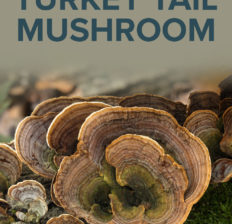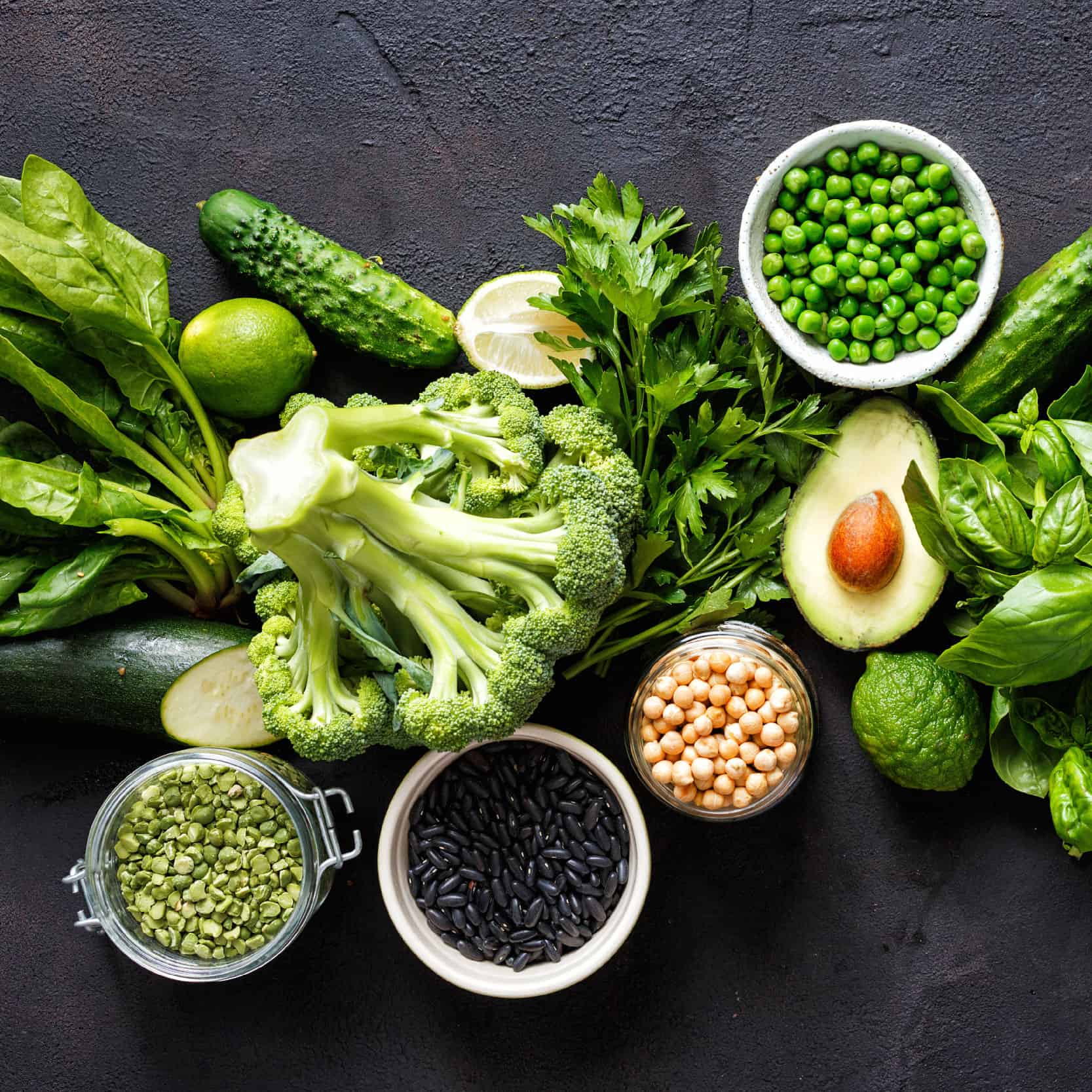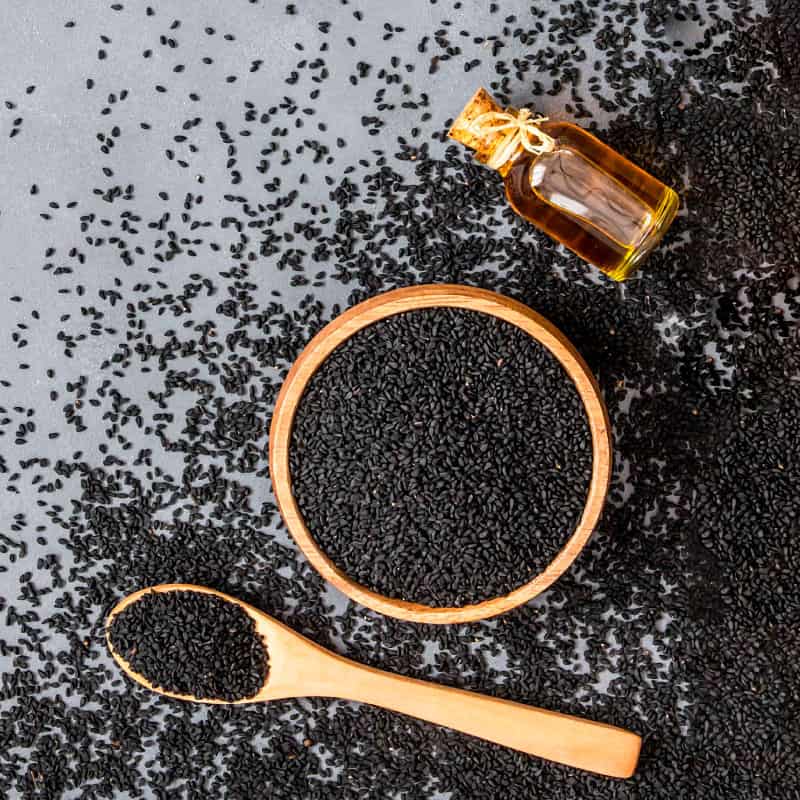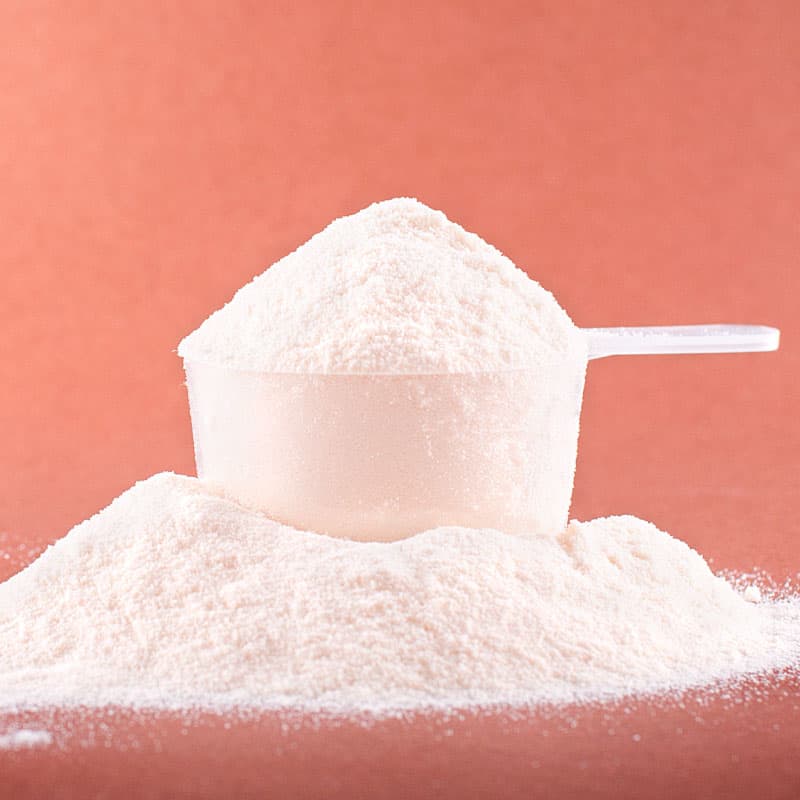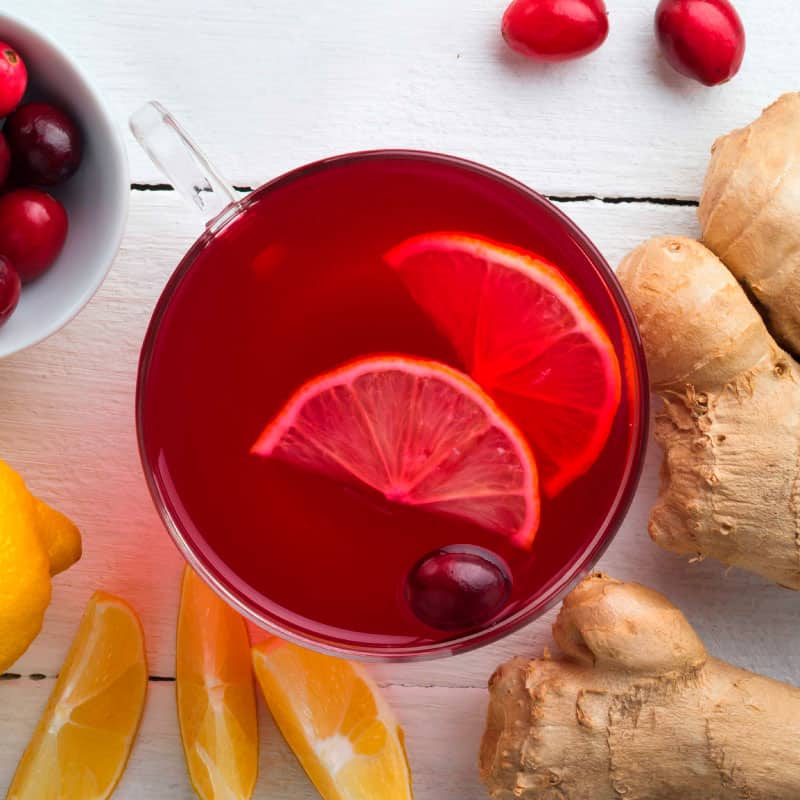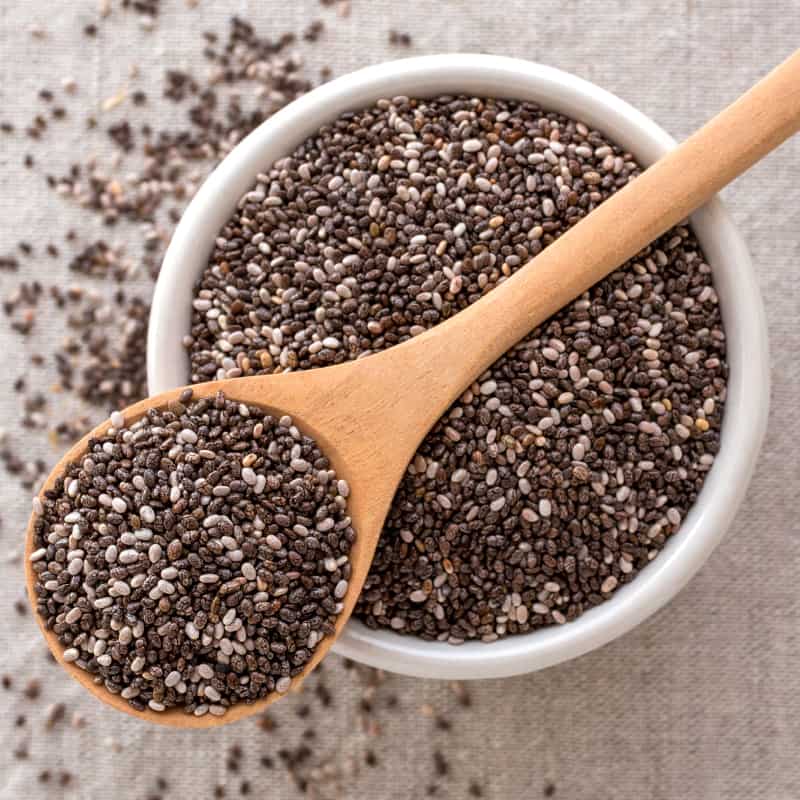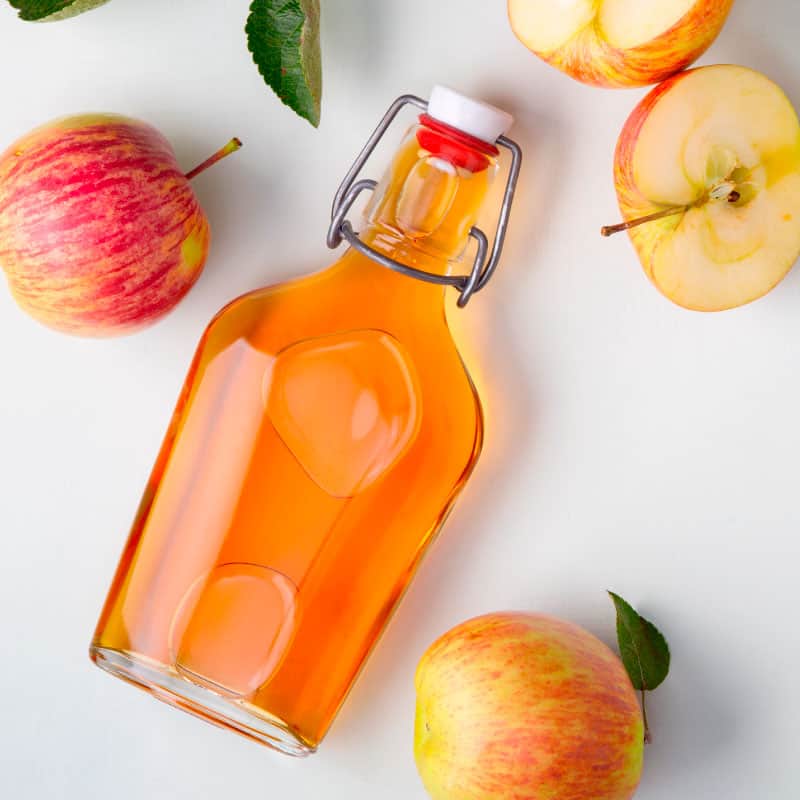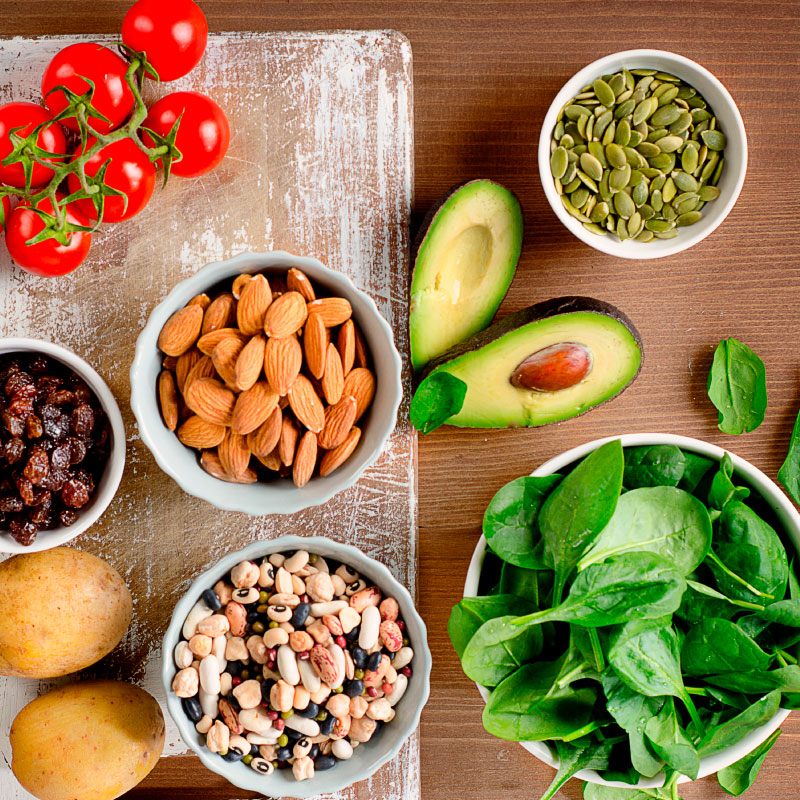This Dr. Axe content is medically reviewed or fact checked to ensure factually accurate information.
With strict editorial sourcing guidelines, we only link to academic research institutions, reputable media sites and, when research is available, medically peer-reviewed studies. Note that the numbers in parentheses (1, 2, etc.) are clickable links to these studies.
The information in our articles is NOT intended to replace a one-on-one relationship with a qualified health care professional and is not intended as medical advice.
This article is based on scientific evidence, written by experts and fact checked by our trained editorial staff. Note that the numbers in parentheses (1, 2, etc.) are clickable links to medically peer-reviewed studies.
Our team includes licensed nutritionists and dietitians, certified health education specialists, as well as certified strength and conditioning specialists, personal trainers and corrective exercise specialists. Our team aims to be not only thorough with its research, but also objective and unbiased.
The information in our articles is NOT intended to replace a one-on-one relationship with a qualified health care professional and is not intended as medical advice.
Turkey Tail Mushroom: The Disease-Fighting, Immune-Boosting Fungus
March 31, 2023
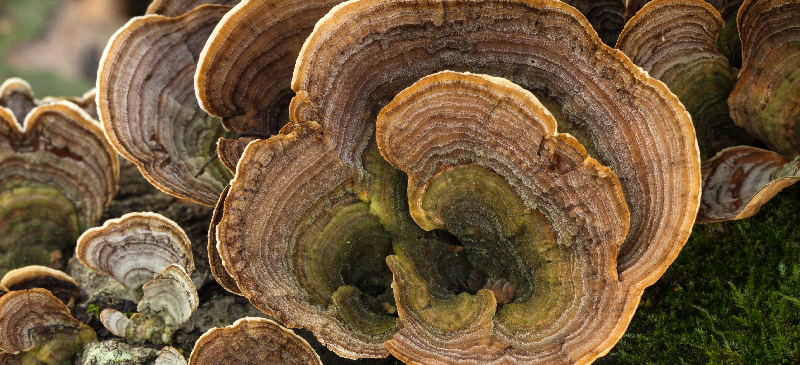
When it comes to functional foods, the turkey tail mushroom, often called turkey tail fungus, may top the list. Named for the colorful fall-like palette of stripes it adorns that favor the plume of feathers on turkeys, turkey tail mushrooms have been brewed for thousands of years by the Chinese as medicinal teas, so it’s no secret to them just how amazing this beautiful mushroom is.
It’s been used as early as the 15th century during the Ming Dynasty in China. The Japanese, who reference it as kawaritake or “cloud mushrooms” due to an image of swirling clouds, have been well aware of the benefits of this super, power-filled mushroom, with researchers noting its health benefits, particularly in boosting the immune system.
In fact, the cloud-like image symbolizes “longevity and health, spiritual attunement and infinity” to these Asian cultures.
So what is this amazing fungus? If you’ve taken a hike in the woods, you’ve probably seen plenty of turkey tail mushrooms because they grow abundantly on dead and fallen trees, branches and stumps. Given the description of bracket fungi, they form a wavy, thin, leather-like structure with concentric circles.
Unlike shiitake mushrooms that have gills underneath the top, they contain tiny pores that release spores, making them a part of the polypore family. These mushrooms easily grow almost anywhere in the world as long as there are trees, making them one of the most common mushrooms found today.
What Is Turkey Tail Mushroom?
The turkey tail mushroom comes from the Trametes versicolor family, formerly Coriolus versicolor (or “cloud mushroom”). It’s one of the 100 species of mushrooms that have been researched for their medicinal properties.
Turkey tail mushroom grows on dead logs in woodland environments worldwide and gets its name from the brown and tan rings that look like the tail feathers of a turkey. It’s a type of bracket fungi, which means that it forms thin, circular structures that appear leaf-like.
To find one, you probably just need to look around the ground when in a wooded area. While they have an array of fall colors like a span of turkey feathers, one of the most vivid colors is typically bright green and is actually algae.
Turkey tail benefits include stimulating immune function and reducing inflammation. It has a long history of use in Asia among practitioners of traditional Chinese medicine, who used formulations of turkey tail to promote general health, strength and longevity.
Health Benefits
1. Helps Prevent and Treats the Common Cold and Flu
The turkey tail mushroom has long been known to stave off any infection, including those associated with the common cold or flu. It helps your immune system become more resilient against ill-causing germs.
When flu season approaches, you may want to include turkey tail as a supplement in your dietary routine.
The turkey tail mushroom has been shown to modulate the immune system, helping fight infections, illness and diseases.
2. Can Offer Support to Chemo Patients
Benefits of turkey tail mushrooms may include helping cancer patients who are going through chemotherapy. The U.S. Food and Drug Administration (FDA) has conducted clinical trials for a turkey tail extract to be consumed by patients who have advanced prostate cancer and are enduring conventional chemotherapy as well as testing how well it helps women with breast cancer in combination with a vaccine treatment in hopes of a new and better form of cancer therapy.
Ultimately, since chemotherapy suppresses the immune system, the hope is that turkey tail mushroom builds the immune system up to better handle the weakness that chemo often causes. A stronger immune system can help combat deadly cancer cells, making the turkey tail mushroom a potentially potent cancer-fighting food.
3. May Help Combat Cancer
For more than 30 years, medicinal mushrooms have been used as adjuncts to standard cancer treatments in Japan and China. They are used for various types of cancer, including lung cancer, breast cancer, gastric cancer and colorectal cancer.
More research is needed to understand the true benefits of turkey tail mushroom for cancer, but there is evidence that it may help significantly improve survival, according to a review done by the National Cancer Institute.
PSK, the best known active compound found in turkey tail mushroom, has been studied in patients with several types of cancer, and it has been safely used for cancer in Japan with few reported side effects. Studies show that PSK helps repair immune cell damage that’s caused by chemotherapy and strengthen the immune system.
When six randomized clinical trials in patients with lung cancer were conducted, researchers found that patients receiving PSK improved in one or more ways, including body weight, well-being, immune function, tumor-related symptoms and longer survival.
A study published in Global Advances in Health and Medicine revealed that an 83-year-old woman who was diagnosed with advanced, metastatic inflammatory breast cancer led a disease-free life after using turkey tail mushroom. Though she continued chemotherapy, she consumed capsules of turkey tail mushroom at the same time.
Scientists believe that the immune response of the turkey tail mushrooms boosted the woman’s immune system by recognizing the tumor, which increased the effectiveness of the chemotherapy. This is consistent with research that claims medicinal disease-fighting mushrooms like turkey tail, as well as maitake, reishi and Agaricus blazei, can be natural immune-enhancing and anti-cancer treatments.
4. Helps Treat Human Papilloma Virus
Mushrooms, in particular the turkey tail mushroom, may help heal infections, such as an oral strain of the human papillomavirus (HPV). According to a study of 61 patients with gum disease testing positive for oral HPV, 88 percent of the 41 patients who received both turkey tail and reishi mushrooms showed positive results after only two months of treatment.
HPV in the mouth can sometimes lead to oropharyngeal cancer of the mouth.
5. Aids in Digestion
The mycelium in the mushroom is what may help you have a smoother digestion process when supplementing with turkey tail mushroom. The mushroom contains perfect prebiotics that assist the microbiome.
This means that it can help the growth of the good bacteria in the body, including acidophilus and bifidobacterium, which is even more beneficial for anyone suffering from leaky gut syndrome. This better digestion could even help you lose weight.
6. May Help Patients with HIV/AIDS
Studies reveal that the use of turkey tail mushroom, in conjunction with other wild medicinal East African mushrooms, may be useful in treating patients with Kaposi’s sarcoma, a skin cancer often affecting those with HIV/AIDS. The same product has also benefited patients with HIV/AIDS even without the sarcoma.
Turkey tail has antibacterial and antioxidant properties. Therefore, an extract of the turkey tail mushroom may be helpful. This extract, called PSP, has been studied in vitro, noting it as an antiviral agent that may prevent the replication of the HIV virus.
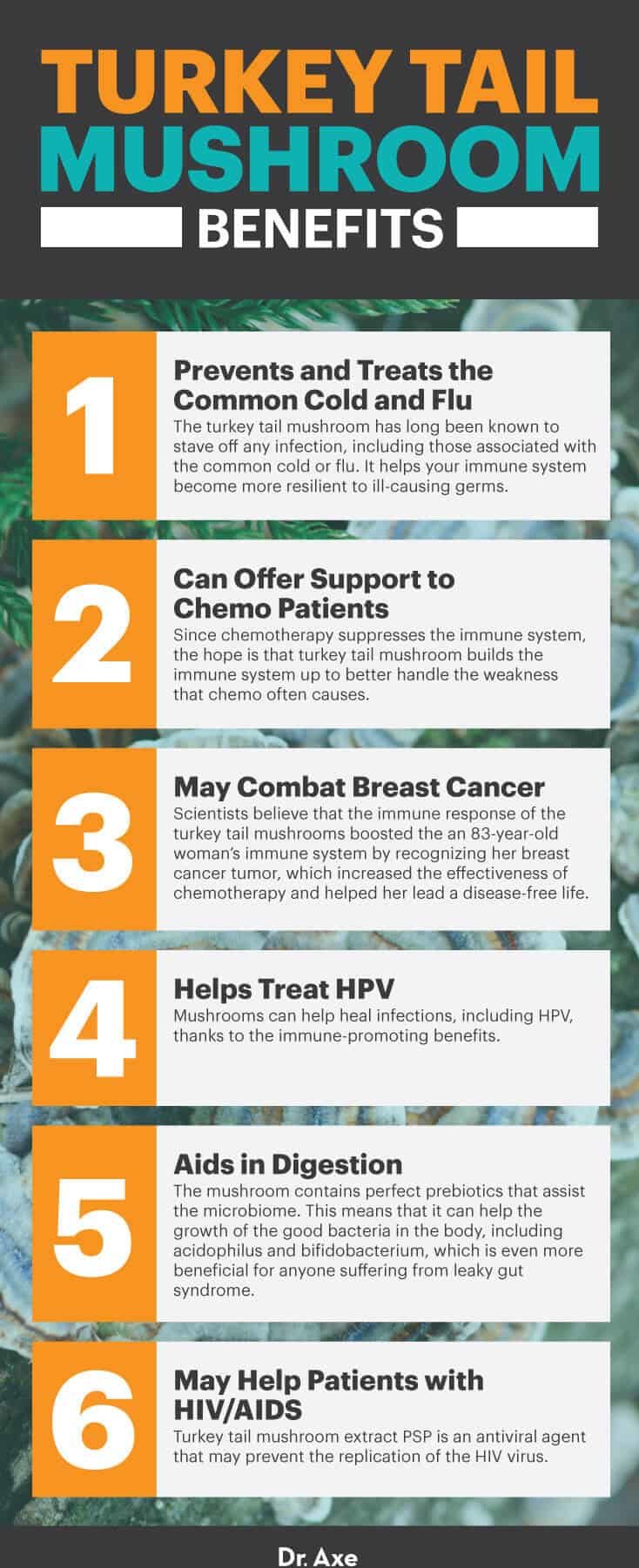
Nutrition Facts
Due to its ability to help cancer patients, turkey tail is considered one of the best researched mushrooms and sits right on top with other medicinal mushrooms, such as reishi, cordyceps, oyster and maitake. Many edible mushrooms contain selenium, vitamin D and vitamin B3, which is part of what makes them strong immune boosters, in addition to the nutrient-rich soil and decaying matter where they live.
These mushrooms feed on this decaying matter and other living things, such as rotting logs, making them saprotrophs.
Turkey tail benefits start with working as an immune system booster. They contain B-glucans, a type of polysaccharides, within the fungal cell walls. When eaten, these B-glucans provide receptors in the small intestine area that get the immune-boosting power in full force.
This power puts the turkey tail mushroom in the adaptogen category. Adaptogen herbs work to resist numerous stress factors that we face daily, providing support to the immune system and stimulating energy levels. Usually, adaptogens are herbal compounds found in things like mushrooms, roots, berries, barks and leaves.
Furthermore, mushrooms are composed of compacted mycelium, the vegetative part of fungus that’s jam-packed with nutrition, such as polysaccharides, proteins, minerals, and vitamins B and D. They’re also low-fat.
The mycelium structure is loaded with helpful enzymes, antimicrobial agents and antiviral compounds. In fact, this mycelium is more important than you may think by helping provide nutrient-dense soil, something our land is often lacking, which can help neutralize the toxins in our immune systems.
Eastern cultures have revered the powerful health benefits of mushrooms for thousands of years. In the classic herbal text the “Shen Nong Ben Cao,” written in 200 A.D., medicinal mushrooms are discussed for their healing potential.
In traditional Chinese medicine, turkey tail mushroom is known as Tun Zhi. It’s been used by practitioners of TCM as an immunomodulator that boosts immune function and fights infections. This ability to support the health of both an underactive and overactive immune system is unique and valued among physicians of traditional medicine.
Turkey tail mushroom is also revered for its potential anti-tumor mechanisms and its ability to treat pulmonary disease. In Japan, a purified hot water extract was traditionally made from cultivated fungal mycelium and used as an adjuvant treatment for cancer.
Turkey Tail vs. Reishi and Chaga
With so much interest in medicinal mushrooms, you may be wondering which one has the most health benefits. The truth is that, from what the research indicates, there are over 100 species of mushrooms that have therapeutic and healing properties.
Three of the most popular mushrooms on the market are turkey tail, reishi and chaga. Here’s a quick rundown on how they compare:
- Turkey tail mushroom: Turkey tail mushroom is consumed or taken as a supplement to stave off infection, offer support to patients undergoing chemotherapy and feed the beneficial bacteria in the gut.
- Reishi mushroom: Reishi mushroom plays a role in balancing hormones, stabilizing blood sugar levels, fighting allergies and asthma, and promoting heart and liver health.
- Chaga mushroom: Chaga mushroom is used to reduce inflammation, enhance endurance, boost immune function and fight viral infections.
All of these mushrooms are available in capsule, tablet and tincture forms, and they are often used together in mushroom tea and mushroom coffee.
Mushrooms have been around medicinally as far back as Neolithic times. In fact, according to Spirit of Change Magazine, “The oldest human mummy, dating back 4,000 years ago, was found with Piptoporus betulinus in his medicine kit, a mushroom used for its antibiotic properties and as a natural parasite killer, still in use today.”
Archaeologists have found evidence of mushrooms on Egyptian hieroglyphics, noting the mushrooms as “the plant of immortality, called the ‘sons of the gods’ sent to Earth on lightning bolts and eaten only by nobles and pharaohs.” The Aztecs event kept mushrooms as sacred, consuming them in holy rituals. And as noted above, Asian cultures have been keen to the turkey tail mushroom since the 15th century.
Supplements and Dosage
Turkey tail mushroom supplements are available in capsule form and usually taken to support a healthy immune system. In case your furry friends need some immune support, you can find turkey tail mushroom supplements for dogs, too.
Clinical evidence doesn’t support one specific dosage for turkey tail. Product labels usually suggest taking one to three capsules daily with meals and a glass of water. Turkey tail is also available in extract and powder forms, which can be added to water, juice or a smoothie.
Polysaccharide-K (known as PSK) is a protein-bound polysaccharide that’s isolated from turkey tail mushroom and used as a dietary supplement. It’s extremely popular in Japan for its anti-cancer properties and is taken orally to improve the response to chemotherapy for people with various types of cancer.
For several decades, PSK has been used in Japan for breast, lung, gastric, esophageal, colorectal, hepatic and nasopharyngeal cancers. In Japan, PSK is meant to help patients undergoing chemotherapy restore their immune status.
PSK cannot be legally sold in the United States. However, the pure version of turkey tail that was used in a breast cancer study can be found at Fungi Perfecti under the label “Host Defense.” Because this turkey tail mycelium is in its pure form, it’s considered an FDA-approved nutraceutical, allowing it to be marketed as a supplement.
False Turkey Tail Mushroom
There’s actually a type of mushroom that’s referred to as “false turkey tail mushroom” or golden curtain crust because it is a turkey tail mushroom lookalike. The scientific name for false turkey mushroom is Stereum ostrea, and it’s a basidiomycete fungus.
Like turkey tail mushroom, false turkey tail has concentric circles of many colors, but these fungui are described as being more red than turkey tail. The name ostrea actually means “oyster” to describe the mushroom’s shape.
Turkey tail mushroom and Stereum ostrea both contain compounds that inhibit the growth of bacteria and fungi. False turkey tail mushroom has been used for folk remedies because of its therapeutic compounds, including sesquiterpenes and other antimicrobial compounds.
How to Use
The turkey tail mushroom is edible but rather chewy, which is why it’s most commonly served as a tea or powder in capsule form. It’s often found combined with other mushrooms as a supplement, which you can find online or in your local vitamin store.
It’s best to buy organic to avoid toxins that may be found in the soil, especially since one of the biggest benefits comes from the dirt the mushroom is grown in, providing nourishment due to its natural environment.
Other things to consider when making a purchase is whether the product has been validated by scientific studies. You want to make sure you get the real thing that has been properly sourced. Find out where the mushrooms were grown and if they’ve been handled by experts.
Turkey tail mushrooms are an edible type of fungi, and they can be utilized in a number of recipes. For instance, you can make your very own turkey tail mushroom tea — just make sure to get turkey tail from an organic source. It’s recommended that you consume one to two eight-ounce glasses per day to receive the immune-boosting power it has the ability to provide.
To get a mild flavor, the best ratio is one part mushrooms to five parts of water. For example, for this recipe, I recommend one cup of mushroom to five cups of purified water:
Turkey Tail and Turmeric Tea
INGREDIENTS:
- 1 cup chopped turkey tail mushroom
- 5 cups purified water
- 2.5 teaspoons ground turmeric
- ½ teaspoon local honey
- 1 drop lemon essential oil
DIRECTIONS:
- Chop the turkey tail mushroom into small pieces, and add to a large pot of water on the stove.
- Bring the water to a boil, then simmer for an hour.
- Strain the mixture through a colander. Add a ½ teaspoon of fresh ground turmeric and the honey, and stir.
- Add the lemon essential oil, and stir again.
- That’s it — time to drink!
If you’d like to add additional flavor, almond milk; one drop of cinnamon, ginger or lemon essential oil; or stevia are good options.
Feel free to add the rest of your turmeric to your leftovers while it’s still warm since it’s easier to blend, and keep any leftovers in the refrigerator. You can then reheat or serve chilled or on ice.
Risks and Side Effects
It’s always best to check with your doctor prior to using any new food for medicinal purposes, especially if you’re pregnant or breastfeeding or have any disease-related condition.
What are the side effects of turkey tail mushroom? Some patients have reported problems with bowels, such as diarrhea and darkened stools, as well as darkened nail pigmentation.
If you notice any negative effects or discomfort while consuming turkey tail mushroom, discontinue use immediately, and check with your doctor.
Final Thoughts
- Research seems very strong in the area of the turkey tail mushroom and its ability to be a great cancer-fighting natural remedy and immune booster.
- These medicinal mushrooms have also been shown to prevent and treat the common cold and flu, offer support to chemotherapy patients, treat HPV and other infections, aid digestion, and even offer help to HIV/AIDS patients, in addition to potentially combatting cancer.
- While more research needs to be conducted, choosing turkey tail mushrooms may be helpful and worth considering. If you choose to use the product, make sure that you adhere to the recommendations above regarding how to use it and buy it.

